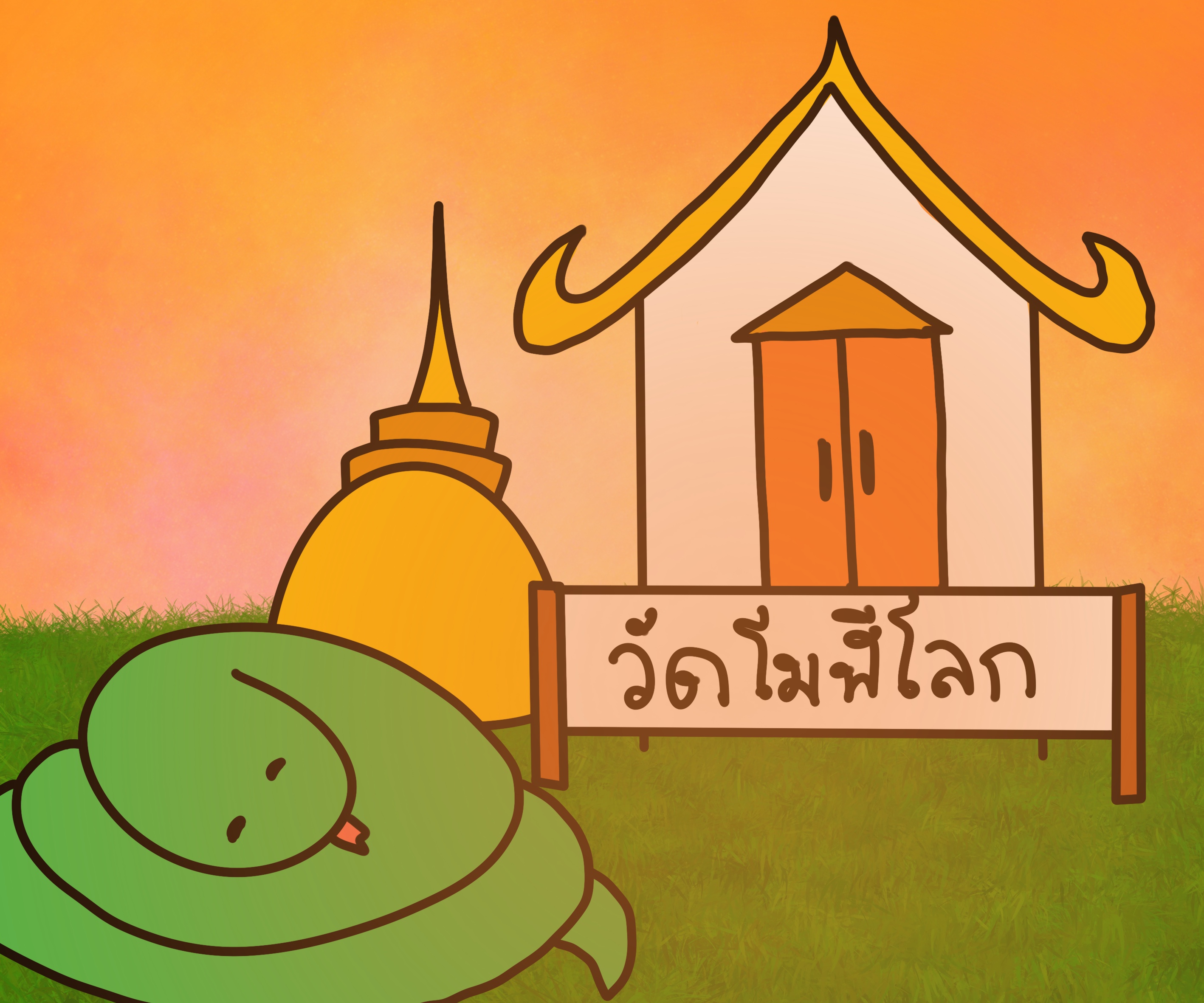The big snake sleeps at the edge of Wat Molilok
งูใหญ่นอนอยู่ ณ ริมวัดโมฬีโลก
An expression to help Thais memorize their low toned single consonants
We've already discussed mid toned. Now we're at low toned. They start off at neutral tone when you don't put any tone marks on them, and they cannot reach the highest tone by themselves. Low toned consonants need help by either adding "ห" or pairing with a high consonant to get all of the tones unlike mid toned consonants that can cover every tone by themselves. The reason why this category is single is that these letters do not need to be paired with high consonants to complete all 5 tones, they just need to add "ห" in front to expand their tones.
the table below will show you how single low toned consonants compare to the mid toned consonants
| neutral | first tone(เอก: ่ ) | second tone(โท: ้ ) | third tone(ตรี: ๊ ) | fourth tone(จัตวา: ๋ ) | |
|---|---|---|---|---|---|
| mid (ก) | กา | ก่า | ก้า | ก๊า | ก๋า |
| single low(น) | นา | หน่า | น่า or หน้า | น้า | หนา |
As you can see the tones are still the same vocally but in written form, they just have different formats. On the second tone there are 2 options to write the same sounds that are pronounced exactly the same way. They just have different meanings. น่า means ____able or making you want to do something for example. น่ารัก: รัก means love, so น่ารัก is lovable or cute. น่ากิน : กิน means eat, so น่ากิน means appetizing, something that looks delicious that you want to eat right now (nom nom nom). On the other hand, หน้า means face, topping, or in front of. It can mean a person's face as in the part of their body, toppings as in when you order a pizza and you need to put toppings on, or in front of something or somewhere. For example, you can say หน้าบ้าน= in front of the house หน้าวัด=in front of the temple

